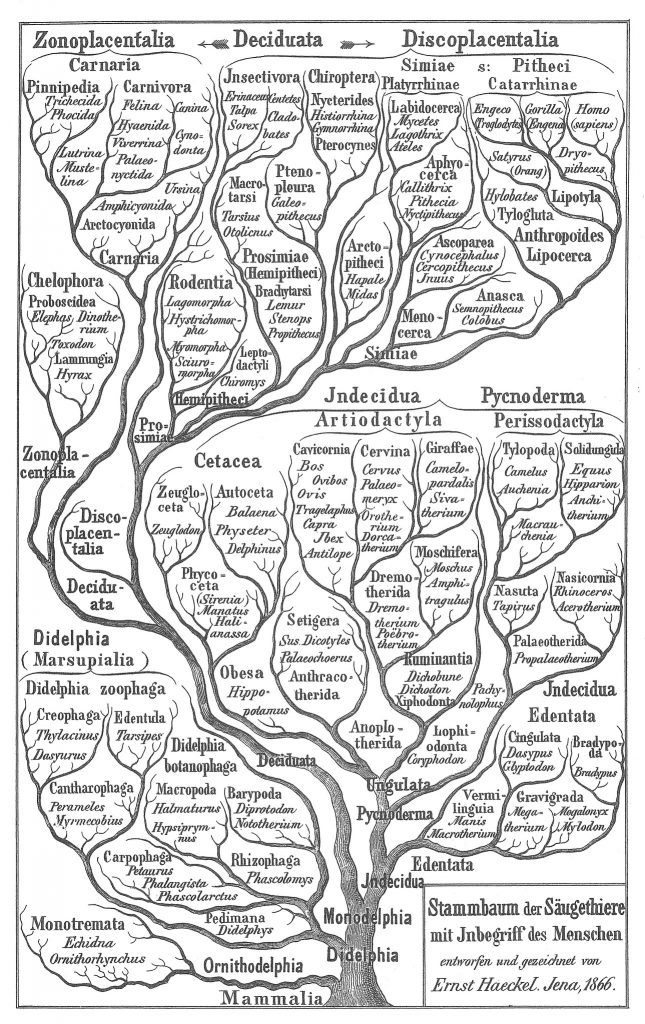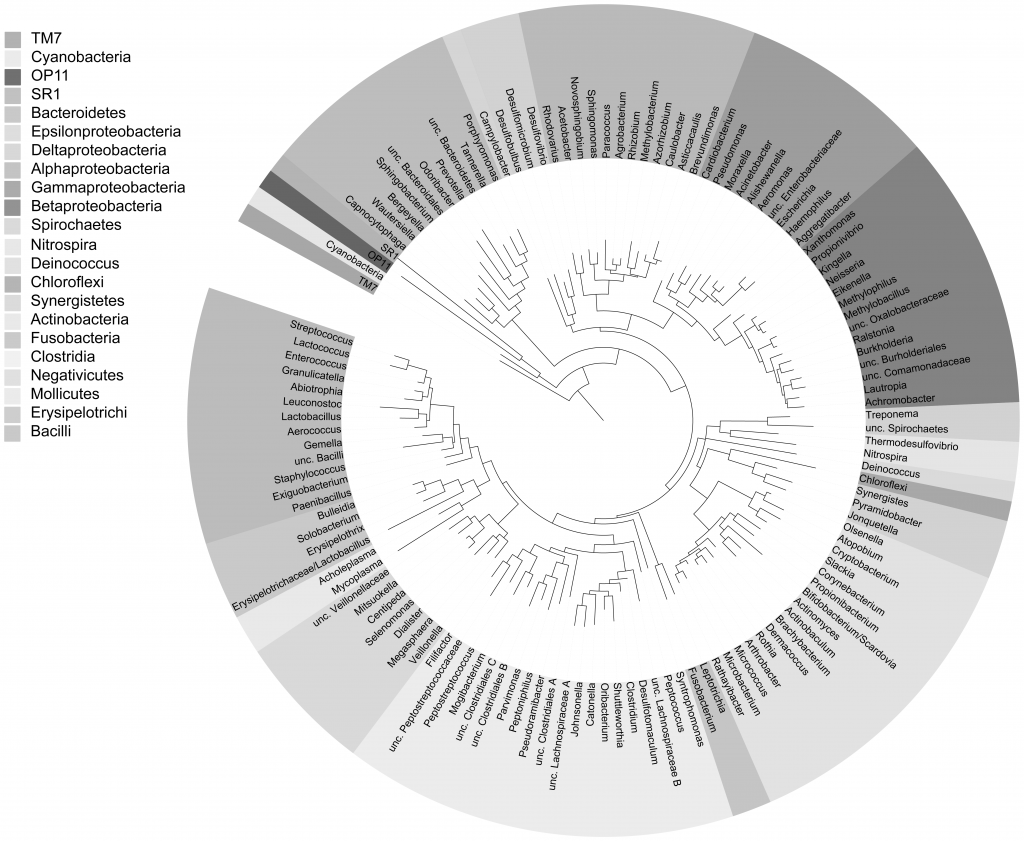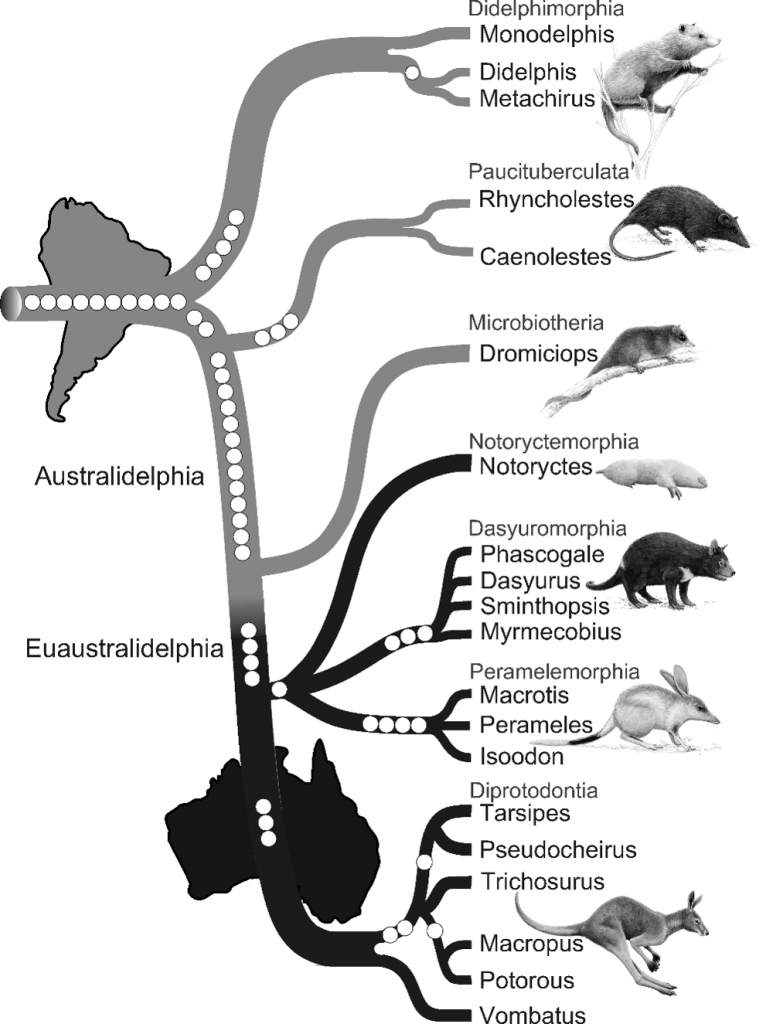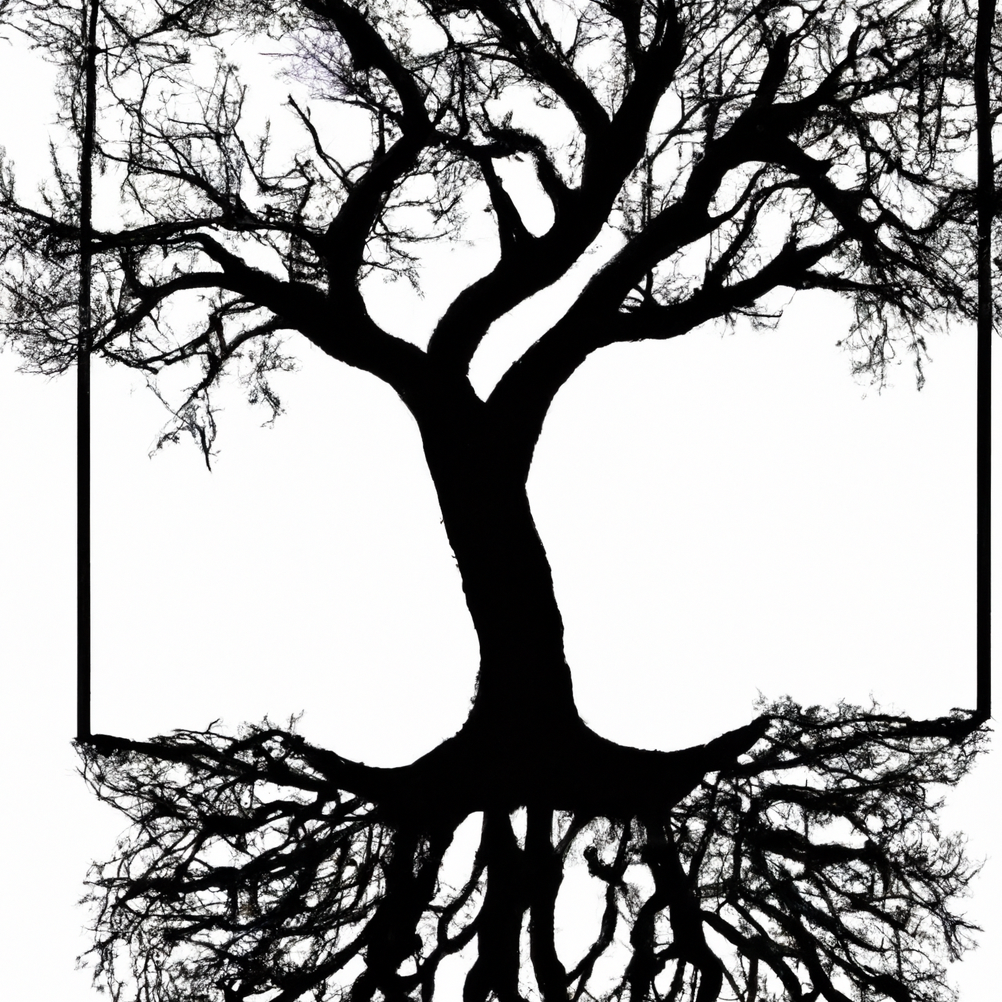Research interests and publications
My research as a doctoral student
As a philosopher of science I specialized in philosophy of biology with focus on evolutionary biology and evolutionary medicine. Ever since I was introduced to the mathematics behind phylogenetic trees, I was fascinated by tree diagrams and tree thinking in biology. Hence, several of my publications revolve around philosophical issues of phylogenies, but I am also interested in visual representations of scientific results and theories, more generally. Other areas of research that are close to my heart are feminist philosophy of science as well as animal and environmental ethics.



Research articles (peer reviewed)
- Kranke, N. (2024): Do Concepts of Individuality Account for Individuation Practices in Studies of Host-Parasite Systems? A Modeling Account of Biological Individuality. Theory in Biosciences 143: 279–292. View article→
- Kranke, N. (2024): How phenograms and cladograms became molecular phylogenetic trees. Journal of the History of Biology 57: 423–443. View article→
- Kranke, N. (2023): Explanatory integration and integrated explanations in Darwinian medicine and evolutionary medicine. Theoretical Medicine and Bioethics 44: 1–20. View article→
- Kranke, N. (2022): Two kinds of historical explanation in Evolutionary Biology. Biology and Philosophy 37: 17. View article→
- Kranke, N. (2022): The Trees’ Tale: Filigreed Phylogenetic Trees and Integrated Narratives. In: Morgan, M.S., Hajek, K.M. & Berry, D.J. (eds.), Narrative Science: Reasoning, Representing and Knowing since 1800. Cambridge University Press, pp. 206–226. View article→
- Desjardins, E., Kurtz, J., Kranke, N., Lindeza, A. & Richter, S.H. (2021): Beyond Standardization: Improving External Validity and Reproducibility in Experimental Evolution. BioScience 71: 5, 543–552. View article→
- Kranke, N. (2020): How the Suffering of Nonhuman Animals and Humans in Animal Research is Interconnected. Journal of Animal Ethics 10: 1, 41–48. View article→
- Gross, F., Kranke, N. & Meunier, R. (2019): Pluralization through epistemic competition: Scientific change in times of data-intensive biology. History and Philosophy of the Life Sciences 41: 1. View article→
- Böhnert, M. & Kranke, N. (2019): Riot Grrrl Primatology. “Über Forscherinnen, Feminismus und feministische Wissenschaften. In: Wunsch, Böhnert, M. & Köchy, K. (eds.) Philosophie der Tierforschung. Bd. 3: Milieus und Akteure. Freiburg/München, Karl Alber, pp. 325–374.
Other publications
- Knapp, J., Dicks, L., Kranke, N., Morgan, W., Potts, S., Smith, H.G., Stout, J., Thijssen, M., Thompson, A., Klein, A.M. (2026). Restoring pollinators in Europe: Evidence-based actions for Nature Restoration Plans. Policy brief written by RestPoll (EU Horizon project No. 101082102). Zenodo. View publication→
- Klein, A.M., Bruelheide, H., Chesters, D., Diekötter, T., Erfmeier, A., Feldhaar, H., Fornoff, F., Grozinger, C., Kranke, N., Liang, Y., Liu, X., Luo, A., Oelmann, Y., Orr, M., Petermann, J.S., Qiao, H., Rehling, F., Sann, M., Scholten, T., Schuldt, A., Seitz, S., Staab, M., Thorn, S., Wang, M.Q., Xiao, Z.S., Zhang, N. & Zhu, C.D. (2026): MultiTroph: Multi-trophic interactions in a forest biodiversity experiment in China. Research Ideas and Outcomes 12: e181743. View publication→
- Klein, A.M., Adamsone-Fiskovica, A., Alins, G., Angelstam, P., Belveze, A., Bosch, J., Breeze, T., Comont, R.F., de Groot, E., Dicks, L., Dominguez, A.R., Dudás, G., Fabricius Kristiansen, L., Fedoriak, M., Gallai, N., Garratt, M., Grivins, M., Grozinger, C., Jenner, N., Kleftodimos, G., Kleijn, D., Kovács-Hostyánszki, A., Krauss, B., Leonhardt, S.D., Osterman, J., Ouin, A., Plowman, A., Potts, S.G., Rasmussen, C., Roquer-Beni, L., Rossi, D., Rundlöf, M., Schweiger, O., Smith, H.G., Stout, J.C., Sutter, L., Thorsøe, M., Vlontzos, G., Wintermantel, D., Kranke, N. & Thompson, A. (2025): RestPoll: Restoring Pollinator habitats across European agricultural landscapes based on multi-actor participatory approaches. Research Ideas and Outcomes 11: e181727. View publication→
- Thompson, A., Kranke, N., Klein, A.M., Taylor, R., Prins, C., Romani, S., de Valk, V. & de Groot, E. (2025): Dissemination and exploitation plan 1. Deliverable D6.5. EU Horizon RestPoll Project, Grant agreement No. 101082102. View publication→
- Adamsone-Fiskovica, A., Mileiko, I., Usca, M., Kranke, N., Thompson, A. & Klein, A. (2024): RestPoll Gender Equality and Diversity Plan. 2nd draft. EU Horizon RestPoll Project, Grant agreement No. 101082102. View publication→
- Klein, A.M. & Kranke, N. (2023): Some thoughts on transparency of the data and analysis behind the Highly Cited Researchers list. Scientometrics, 128, 6773–6780. View article→ (article cited in “Le Monde“, 12.03.2025)
- Doronina, L. & Kranke, N. (2018): Das Verwandtschaftsnetz von Fledermaus, Pferd, Hund und Kuh. Biologie in Unserer Zeit 48:5, 287–288. View article→
- Kranke, N. (2019): Whose knowledge is represented on Wikipedia? The Eyebrow, 2:5. View article→
- Kranke, N. (2018): Inferiority complex, identity crisis, and unemployment: On the risks of being an interdisciplinary researcher. The Eyebrow, 1:4. View article→
- Kranke, N. (2018): Philosophy in Science for the World. The Eyebrow, 1:3. View article→
View my talks → and teaching activities →
